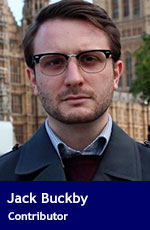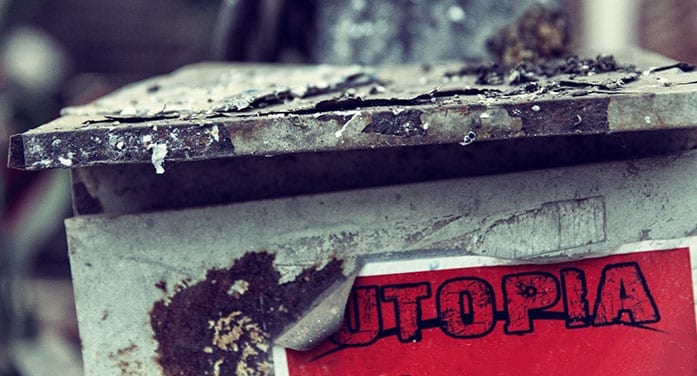 The Great Reset is often labelled a conspiracy theory but it’s real. All it takes is a cursory Google search to see that the World Economic Forum (WEF) and other global economic bodies have adopted the term with precisely the same meaning as the one used by those people called conspiracy theorists.
The Great Reset is often labelled a conspiracy theory but it’s real. All it takes is a cursory Google search to see that the World Economic Forum (WEF) and other global economic bodies have adopted the term with precisely the same meaning as the one used by those people called conspiracy theorists.
Openly contemplating the possibility that Western governments are using COVID-19 to rubber-stamp previously unpopular policies is generally acceptable until the moment the Great Reset term is used.
This alone makes using it detrimental to openly discussing the problem, but it also fails to address the non-economic issues and policies being ushered in by politicians and campaign groups that were considered radical or extreme even a year ago.
The Great Reset strikes me as a financial plot dreamed up by economists. It serves as a catalyst to facilitate a new social agenda pushed by radical progressives.
More than just a reset, that radical agenda is a post-COVID-19 utopia dreamed up by pseudo-academics and activists, building on the work done by the experts in the financial fields. This is evidenced in the policies Western governments have already implemented.
A slew of academic reports using the pandemic to prove the existence of structural racism has hit the international headlines over the last year. In February, Canadian public health experts Ananya Tina Banerjee and Akwatu Khenti told CBC Radio that Black Canadians should be given the vaccine first.
‘Structural racism’ and ‘white privilege’ are now in the common lexicon. They have become hugely profitable industries for authors like Robin DiAngelo, and are even taught as truth in government agencies and corporations.
The pandemic is the first time in recent history that the progressive left has successfully won a battle during an economic crisis. Traditionally, anti-system populist parties have benefited from economic crises. Right-wing and far-right groups, particularly across Europe, saw huge gains in the wake of the 2008 economic crisis, with some far-right groups gradually fizzling out as the economy recovered. The United Kingdom saw the same effect in the 1980s.
As national economies change, with even conservative governments and leaders advocating for universal basic income policies and high spending during lockdowns, radical activists are building their post-COVID-19 utopia while the populace is otherwise distracted.
In Canada, even as the poll numbers for the Liberal Party slip, the Conservative opposition also appears unwilling to provide bold alternatives and a positive vision that goes above and beyond the Great Reset. In what seems to be a trend for conservatives, who are always on the back foot and defensive, progressives are holding onto and even gaining power by attaching positive messages to racially discriminatory and divisive policy initiatives and promising a new utopia when the voters can finally take their masks off and breathe.
The power of good branding along with the damage done by the lockdowns is so mighty that the progressive left won a national election after their supporters caused $2 billion in damage in the United States in 2020, even burning down Black-owned businesses in the process.
Meanwhile, Canadian Conservative Leader Erin O’Toole agrees with Prime Minister Justin Trudeau on national lockdowns, and Britain’s Conservative Prime Minister Boris Johnson has overseen one of the strictest and longest lockdowns in the world.
In this COVID-19 era, every party is pro-system. Government is bigger but not populist. And in the absence of pro-freedom leadership, the Great Reset agenda has facilitated the push for a post-COVID-19 utopia that is horrifying.
Nonetheless, some pushback exists. When the World Economic Forum tweeted that “Lockdowns are quietly improving cities around the world” in February, the official WEF account apologized, deleted the post and said that lockdowns are not in fact improving cities.
“But they are an important part of the public health response to COVID-19,” the account insisted.
The notion that lockdowns improve cities while small businesses fail should be much more controversial than it was, and pushback should be greater. And as the West slowly leaves lockdown, it’s up to those who were impacted by these lockdowns to resist the radical new politics of the post-COVID-19 utopia.
A catastrophic event on this scale may not occur for several more decades, meaning a radically progressive, race-based and socialism-embracing utopian vision won’t slip through the cracks again for quite some time.
Failure to resist it, however, could see the post-COVID-19 utopia become a permanent new reality.
Jack Buckby is a research associate with the Frontier Centre for Public Policy.
Jack is one of our Thought Leaders. For interview requests, click here.
The views, opinions and positions expressed by columnists and contributors are the authors’ alone. They do not inherently or expressly reflect the views, opinions and/or positions of our publication.
© Troy Media
Troy Media is an editorial content provider to media outlets and its own hosted community news outlets across Canada.


